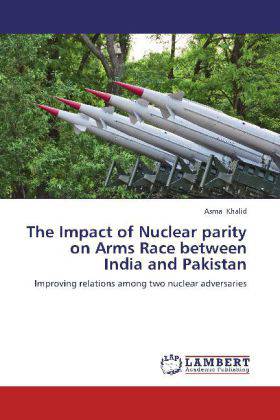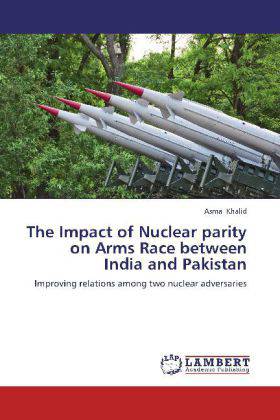
Je cadeautjes zeker op tijd in huis hebben voor de feestdagen? Kom langs in onze winkels en vind het perfecte geschenk!
- Afhalen na 1 uur in een winkel met voorraad
- Gratis thuislevering in België vanaf € 30
- Ruim aanbod met 7 miljoen producten
Je cadeautjes zeker op tijd in huis hebben voor de feestdagen? Kom langs in onze winkels en vind het perfecte geschenk!
- Afhalen na 1 uur in een winkel met voorraad
- Gratis thuislevering in België vanaf € 30
- Ruim aanbod met 7 miljoen producten
Zoeken
The Impact of Nuclear parity on Arms Race between India and Pakistan
Improving relations among two nuclear adversaries
Asma Khalid
Paperback | Engels
€ 63,45
+ 126 punten
Omschrijving
There is an asymmetry between India and Pakistan in conventional military capabilities. India is superior militarily, politically and economically than Pakistan. The growing defence production gap and Indo-US nuclear deal is disturbing the balance of power. The imbalance has trigger the conventional, missile and nuclear arms races between two countries. It severely destabilizes the security situation and deterrence stability in South Asia. To maintain peace and stability, it is necessary for India and Pakistan to shift their focuses from traditional security to non-traditional security. With the changing dynamics of security,India and Pakistan can change the nature of their relationship as nuclear neighbors through establishing bilateral arms control regime, increasing co-operation in economic field, using media as negotiating tool and through public diplomacy and youth-culture exchange program.
Specificaties
Betrokkenen
- Auteur(s):
- Uitgeverij:
Inhoud
- Aantal bladzijden:
- 76
- Taal:
- Engels
Eigenschappen
- Productcode (EAN):
- 9783659303081
- Verschijningsdatum:
- 1/12/2012
- Uitvoering:
- Paperback
- Afmetingen:
- 150 mm x 220 mm
- Gewicht:
- 122 g

Alleen bij Standaard Boekhandel
+ 126 punten op je klantenkaart van Standaard Boekhandel
Beoordelingen
We publiceren alleen reviews die voldoen aan de voorwaarden voor reviews. Bekijk onze voorwaarden voor reviews.









